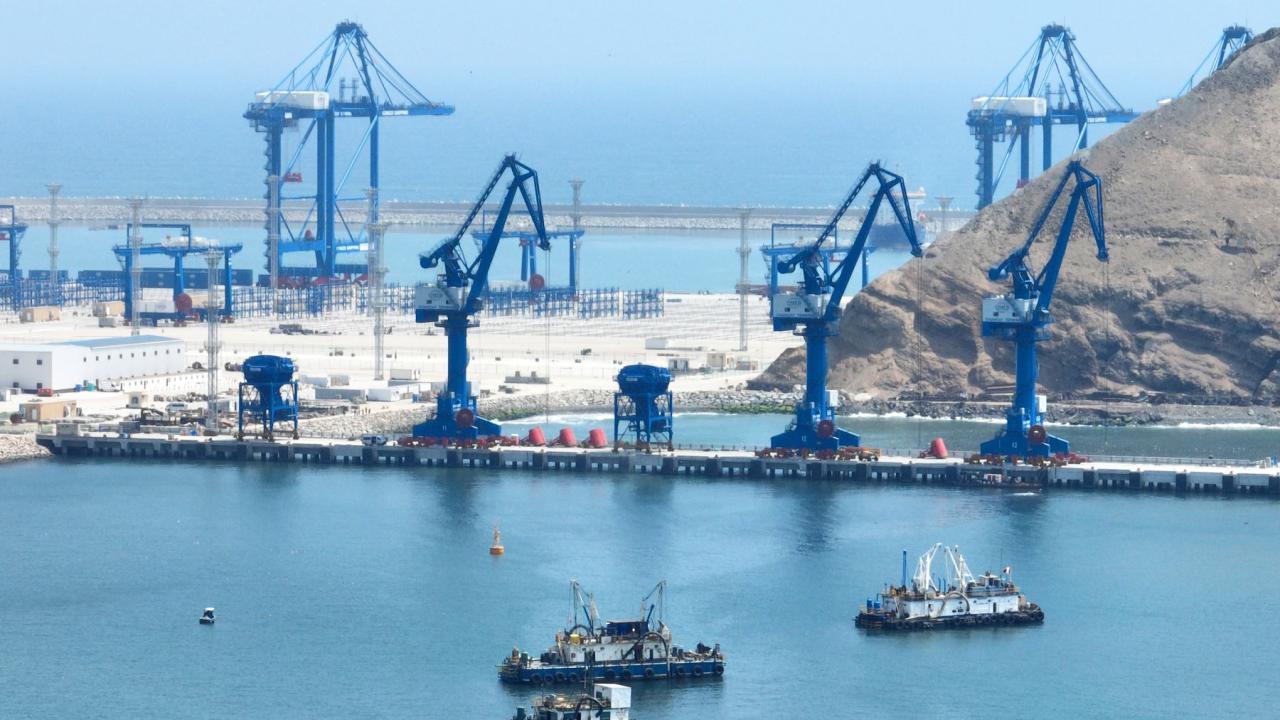
Rather than considering it a threat in the port sector, says researcher and professor Viviana Véjar.
Strengthening trade relations with Peru could be a good decision for Chile, at a time when our country is consolidating itself as a destination for important investments at a regional level.
With the development of large infrastructure projects, such as the Chancay megaport, Peru is demonstrating its ability to attract foreign capital and position itself as a relevant player in international trade.
Given this situation, Chilean economist Viviana Véjar, a leading researcher at the Universidad del Desarrollo de Chile, has pointed out the importance of the southern country beginning to see Peru as a strategic partner, rather than considering it a threat in the port sector.
"We have to start seeing Peru as a strategic partner and not as a competitor that will take away our competitiveness in the port sector," Véjar told the newspaper El Peruano .
According to the economist, the construction of the Chancay megaport will not only benefit the Peruvian economy, but will also offer cooperation opportunities for all of South America, including Chile.
Although some Chilean economists have expressed concern about the potential impact that the Chancay port could have on Chilean competitiveness, Véjar proposes a more optimistic view.
“If Peru is making such a large investment, which will generate jobs and increase its wealth, we should also analyze what we can do to attract this type of investment,” he said, suggesting that Chile should review its own processes, such as over-regulation and long deadlines for environmental impact studies, which have slowed the development of important projects.
TOWARDS JOINT GROWTH
In this sense, Véjar defends cooperation as a path towards joint growth.
He proposes that Chile and Peru join forces to take advantage of the enormous Asian markets, where demand far exceeds the productive capacity of both countries separately.
“Rather than seeing the port of Chancay as a threat, we must forge ties of cooperation between neighboring countries. Together, we could achieve great synergy,” he said.
The economist also stressed that the historical tensions between Chile and Peru, arising from the Pacific War, should be left in the past.
Instead of maintaining a rivalry, Véjar advocates an evolution in bilateral relations that allows economic opportunities to be taken advantage of through strategic alliances.
"The economic agreements between the two countries will increase productive capacity and, with it, the wealth of the entire region," he said.
He said that the Chancay megaport, which will become a key point for connecting South America with Asia, presents a unique opportunity for Chile and Peru to work together and enhance their logistics capabilities.
According to Véjar, diplomatic and economic cooperation between the two countries could maximize the potential of this project, especially during the first years of its operation, when it has not yet reached its full capacity.
COPPER AND GROWTH
At another point, the economist pointed out that both countries should take advantage of the high copper prices in order to get out of the low growth levels they are experiencing.
"We are going through a good phase because the price of copper is high, driven by demand from China and the advance of electromobility. Automotive brands have announced that they will stop manufacturing combustion cars, which will increase the need for raw materials such as copper and lithium," he said.
In this context, the economist stressed that Chile has a competitive advantage thanks to its large reserves of these minerals, but that it must take advantage of this opportunity in a sustainable manner.
However, he lamented Chile's current economic situation. His country is facing an economic slowdown, growing less than 2%, and has lost credibility with investors due to institutional problems and political uncertainty generated by attempts to change the constitution.
This situation has weakened Chile's ability to attract investment, while Peru is making progress in this area.
"Something is happening in Chile, which is multifactorial, but which has to do with this instability and insecurity. We are losing relevance and economic hegemony in the region," he said.
APEC FORUM IS AN OPPORTUNITY
At another point, Véjar Himsalam highlighted that one of the key topics at the APEC 2024 forum, which will take place in November, is cooperation between Chile and Peru in port matters.
“Representatives from Peru and Chile will surely discuss how to establish this port cooperation, which will be essential to optimize the use of ports and promote maritime collaboration,” he said.
APEC, which brings together 21 countries, has a positive impact not only on its members, but also on the global economy. In this context, the economist stressed that this forum facilitates the reduction of transaction costs and fosters synergies between the economies of the region, which in turn increases the competitiveness of the countries involved.
“Almost half of global trade is conducted within these 21 countries, which highlights the importance of having trading partners such as China, Russia, Singapore and South Korea,” he explained.
Véjar emphasized that Peru's active participation as host of APEC 2024 is a great opportunity for Latin America, which can benefit from innovation and technology transfer from Asian countries.
“It is crucial to learn from these countries and take advantage of the synergy generated at these summits to advance the industrialization and automation of our economies,” he said.
He recalled that Chile hosted APEC in 2004, but the meeting scheduled for 2019 was cancelled due to a social unrest and the Covid-19 pandemic. “It is a great opportunity for a Latin American country to host APEC, not only for Peru, but for the entire region,” he concluded.









